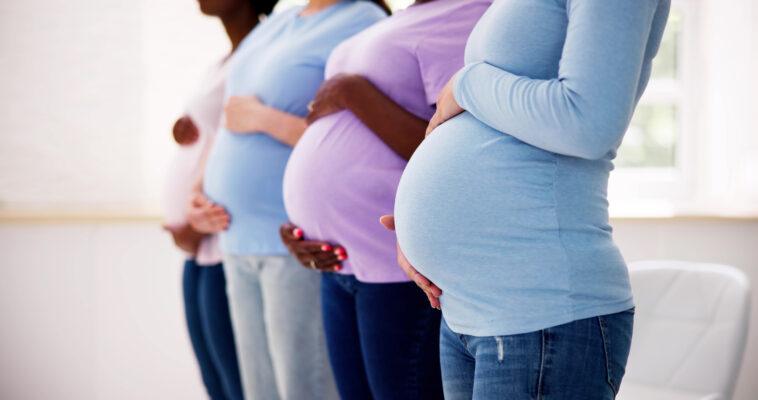Women are waiting longer to get pregnant. For the first time, women over the age of 30 are having more babies than women under 30. According to the Centers for Disease Control and Prevention (CDC), this trend has gradually increased since 2000.
It makes sense: Americans are staying single longer, with the median age for first marriages reaching a high in 2017 of 29.5 years for men and 27.4 years for women. It follows that couples who have waited longer to get married will be older when they have kids. But does that make it harder once older couples do decide to conceive?
Pregnancy Risks at 35
At 35, women who want to have a baby may face challenges they would not have encountered a few years earlier.
- Difficulty becoming pregnant. It may take longer to get pregnant since the woman has a limited number of eggs, which decreases with age.
- Diabetes. Both preexisting diabetes and gestational, which occurs during pregnancy, can damage organs in the body.
- High blood pressure. This occurs when the force of blood within the blood vessels is too high, making pregnancy more dangerous for mom and baby.
- Preeclampsia. This condition occurs in the second half of pregnancy, during the 20th week or after, when high blood pressure affects the mom’s kidneys, liver and other organs.
- Greater chance of becoming pregnant with multiples. Whether through fertility treatments or independently, older moms are more likely to become pregnant with more than one baby at a time. Pregnancy with multiples increases risk, regardless of your age.
In addition to risks to the mom, an older woman who becomes pregnant also increases the risk to the baby. The March of Dimes says these risks include a greater chance of premature birth, low birth weight, birth defects, miscarriage and stillbirth.
Having a Healthy Baby When You’re Over 35
While your and your baby’s health risks increase as you age, that doesn’t rule out having a healthy baby once you’re over 35.
Prepare for pregnancy with a preconception checkup with your doctor.
- Make sure you have no preexisting conditions to address — and if you do, address them, such as losing weight or getting high blood pressure or diabetes under control.
- Update any vaccinations needed.
- Discuss any family or personal history that may affect your pregnancy and talk with your doctor about any individual challenges you may have.
- Follow your doctor’s directions. Your doctor will suggest that you take a vitamin with folic acid, which can prevent neural tube defects in your baby.
- Avoid smoking, drinking alcohol, using illegal drugs or abusing prescription drugs before or during the pregnancy.
Attending your prenatal checkups is essential, starting as soon as you know you’re pregnant. Continue to maintain your health by eating healthy food, getting the recommended amount of exercise and minimizing stress.
Although becoming pregnant after age 35 is considered a higher risk, that risk increases incrementally; it’s not just a big jump from age 34 to 35. What’s more, that risk still depends on your individual health, so your specific risk could be lower than that of someone younger.
By preparing for pregnancy, working with your doctor and taking good care of yourself, you can increase the odds of having a safe pregnancy and a healthy baby despite your age.



Comments